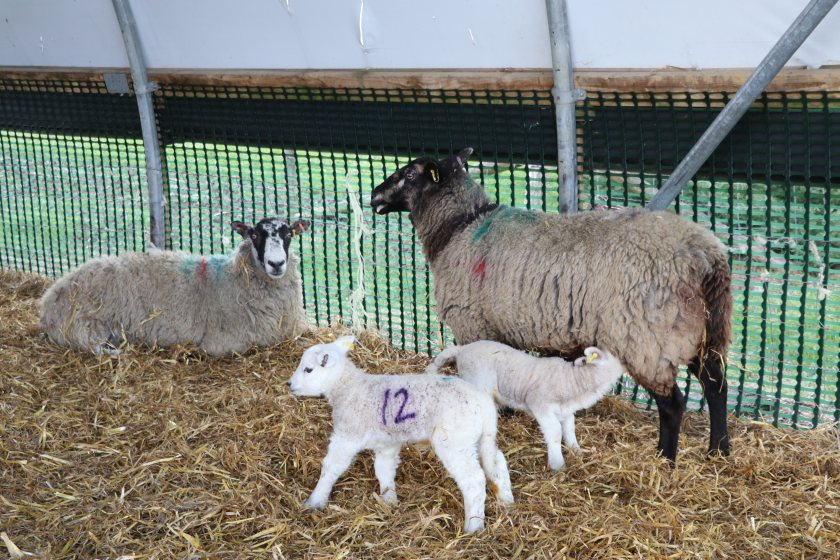
A new 'Flockmaster' course has been launched by the Royal Veterinary College to help sheep farmers increase flock productivity and health.
The college's new course is designed to help sheep farmers, shepherds, and smallholders build knowledge and skills to improve the health of their sheep.
Rearing sheep is a highly complex process with risks at purchase, breeding, lambing and rearing lambs.
For example, a recent survey found that 18% of breeding rams had foot issues, 8% had soft testes and 50% were not at the target body condition - all of which can affect the reproductive performance of the flock.
Similarly, fewer than 5% of farmers routinely screen for so-called iceberg diseases, but the percentage of flocks infected with one of these, Johne’s disease, has been estimated as high as 64%.
Throughout the course, participants will have the opportunity to improve their practical skills and knowledge relating to the whole sheep production cycle.
This includes selecting animals for purchase and breeding, tupping, pregnancy and lambing, to optimising lamb survival, growth rates and production.
Starting in July 2022, participants can take part in four sessions to build their knowledge.
The first session will cover areas such as how to optimise reproductive performance on their farm and how to structure their purchases of sheep to minimise the risk of disease introduction.
Topics included in other sessions, which will run in December 2022, February 2023 and May 2023, will cover preparing ewes adequately for lambing, as well as lambing itself, and ewe and lamb management from birth to eight weeks.
Although designed to run as a series, the Royal Veterinary College says the sessions are also independent of one another to enable participants to take part in the areas of most relevance to them.
The college says the course will also develop participants’ skills to ensure growth rates and lamb survival is maximised to get the best out of their lambs, both for replacement and selling.
James Patrick Crilly, lecturer in small ruminant health at the RVC said: “We have seen first-hand how some of these conditions can inhibit flock health and production.
"By further educating both novice and experienced sheep farmers, shepherds, and smallholders, the cumulative effect of even small changes in flock management can effect great improvements in performance."
He added: "Through the sheep year, it will provide participants with timely and relevant skills and knowledge to improve the health and productivity of their flock."
